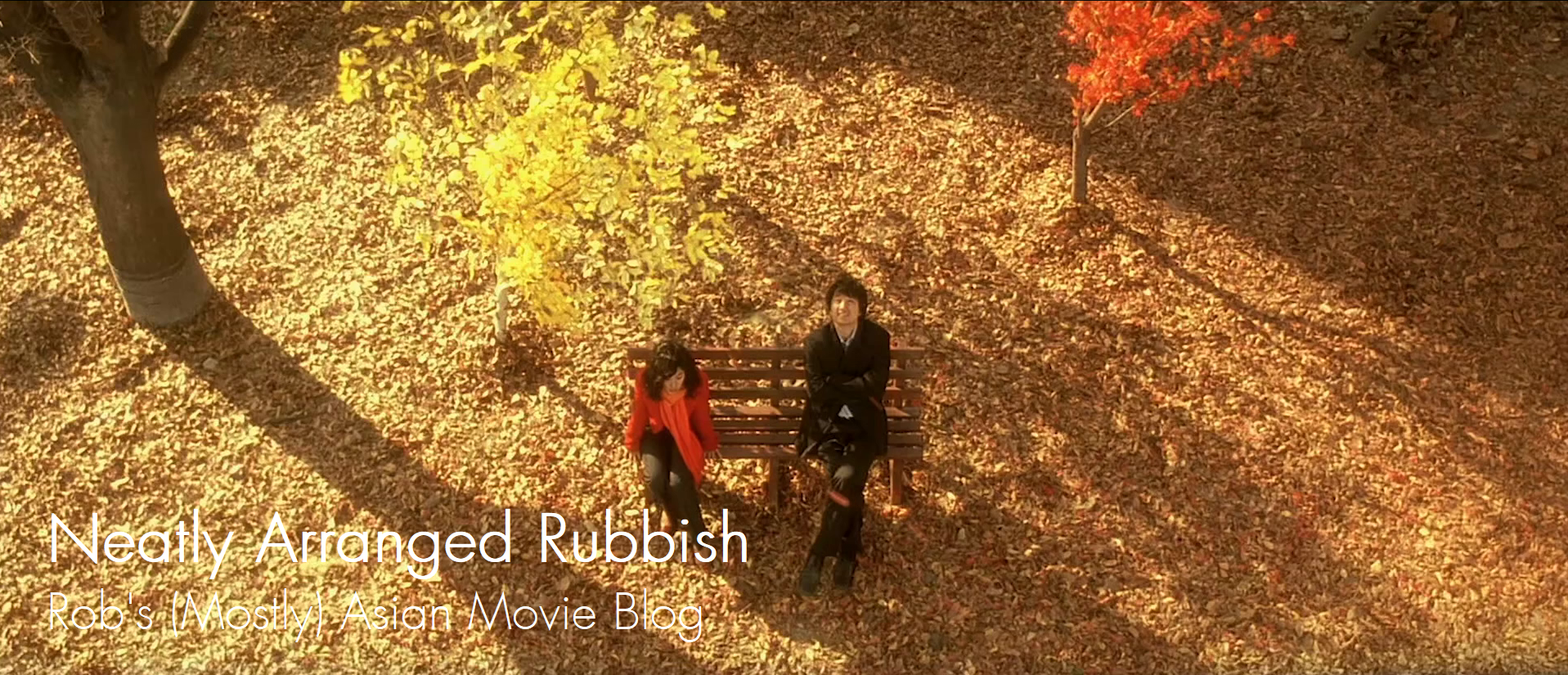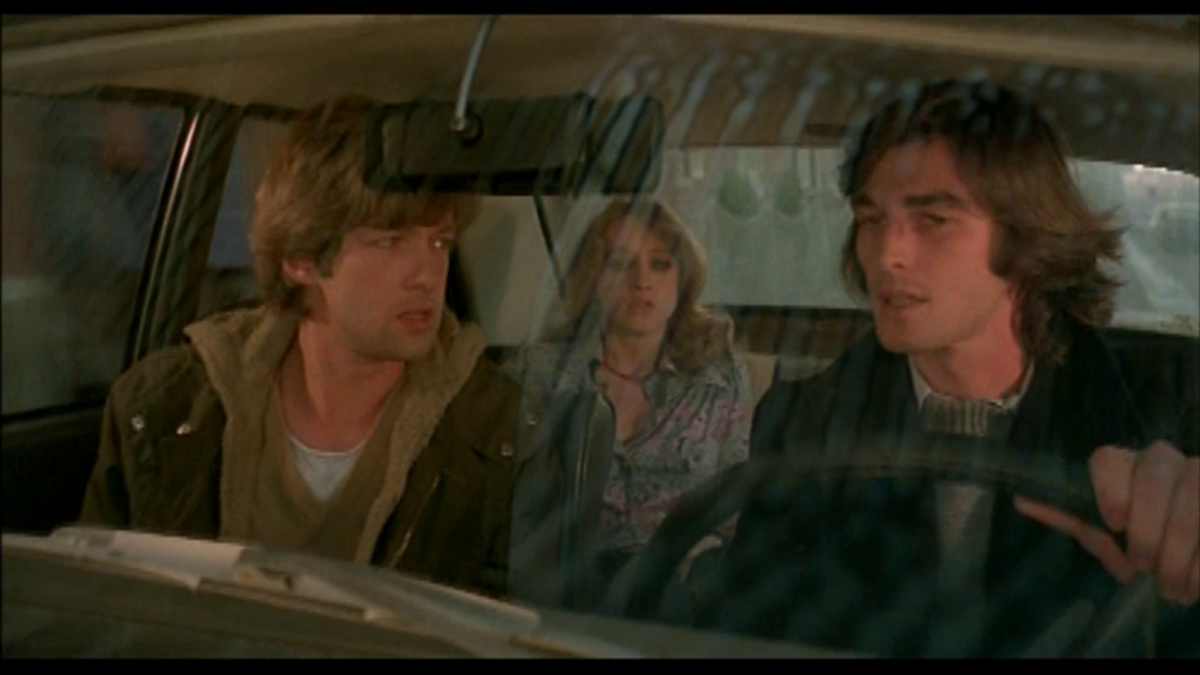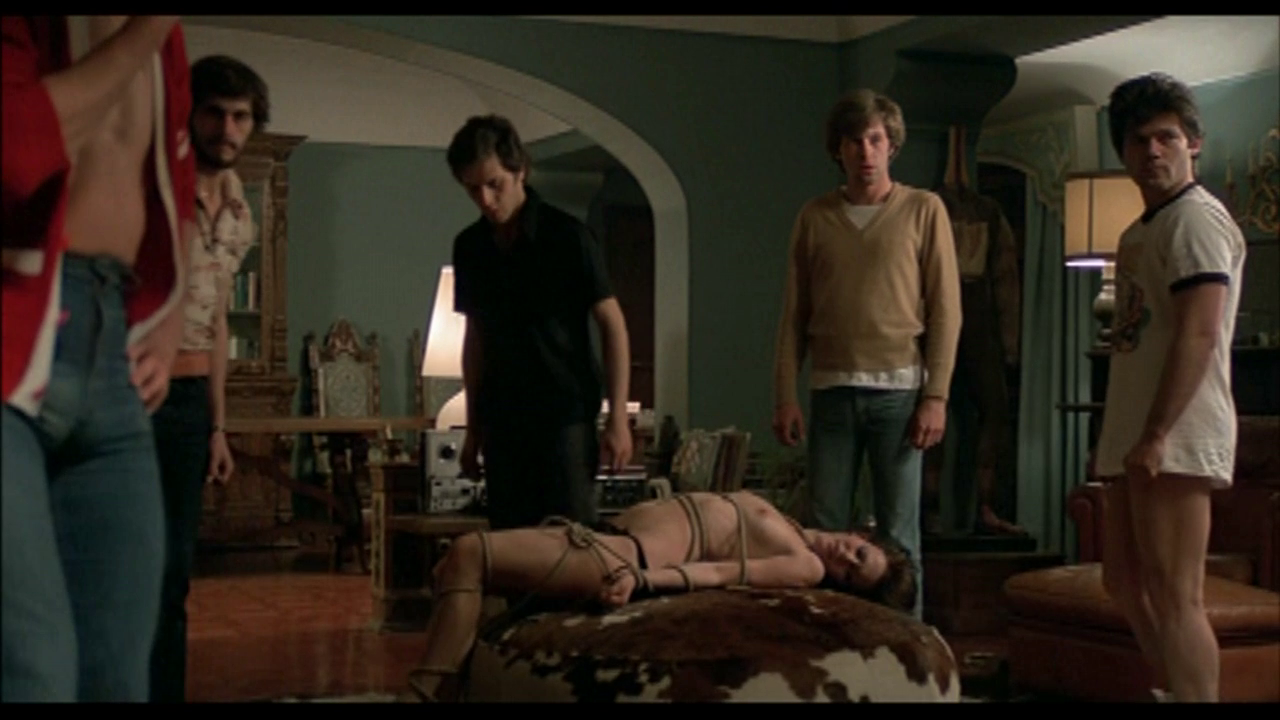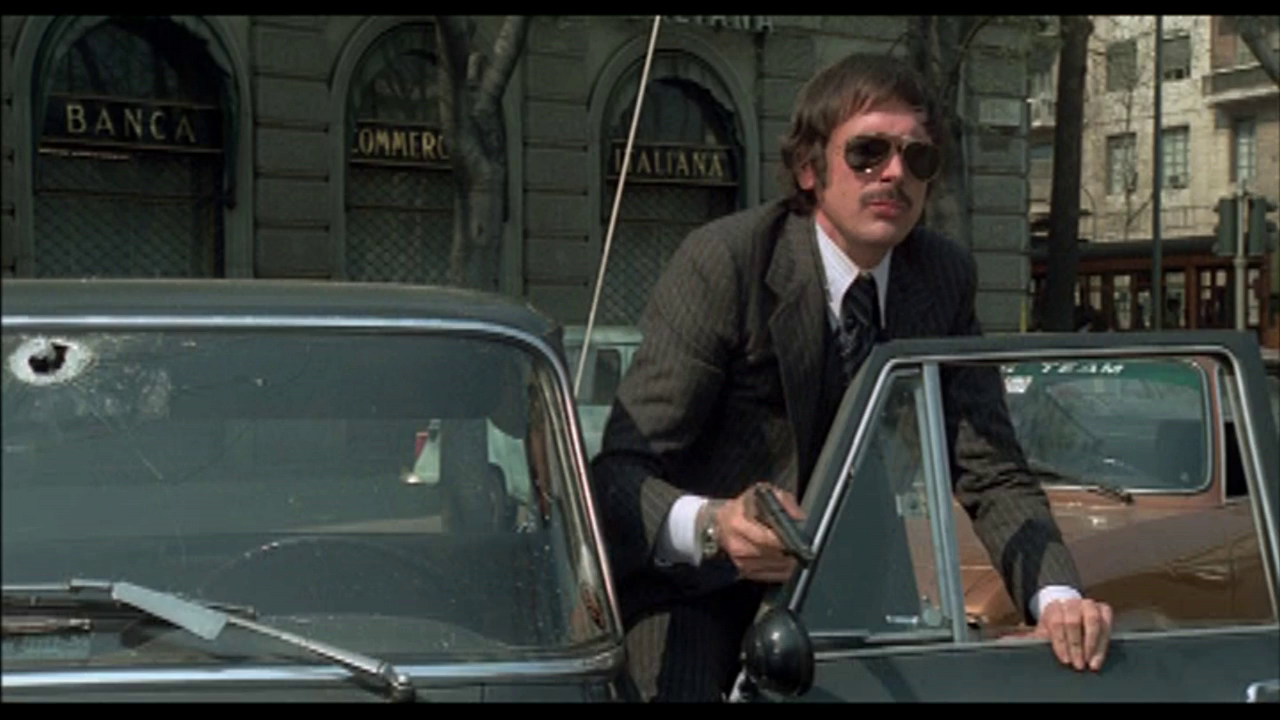Last Updated on September 30, 2020 by rob
Three young men – Blondie (Stefano Patrizi), Luigi (Max Delys) and Joe (Benjamin Lev) – pull a petrol station robbery for kicks but events rapidly get out of control when the lads gun down the cops sent to arrest them. In quick succession the boys rob a bank then team up with friends to raid a supermarket. But the robbery turns into a bloodbath and – shunned by professional criminals – Blondie orders Max’s girlfriend Lea (Eleonora Giorgi) to be taken hostage as the group find themselves the object of a nationwide manhunt led by the Police Commissario (Tomas Milan).
Pacy crime flick with delinquent youths running riot across Rome to the horror of Tomas Milan’s policeman. PLenty of modestly staged action and chases and I always get a laugh out of seeing the Italian coppers whizzing around in those almost comically boxy Fiat cars. You’d think any hardened criminal seeing those rattling down the road toward him would collapse laughing at the sight of them but that may be me having been spoilt by too many Sweeney episodes. Action aside also some emphasis here on the characters with Blondie carrying a repressed sexual attraction for best friend Luigi (the only one of the three men with a conscience), Joe a cackling psychopath only barely under Blondie’s control and Luigi hating every minute but then getting into the swing of things when he discovers just how talented he is as a getaway driver (in a gorgeous old white Jag no less).
The young cast are decent enough and I particularly liked the moment of silent, sympathetic understanding from Eleonora Giorgi’s Lea after Blondie has tried and failed to make love to her. But for all that the intriguing emotional dynamic between the tearaways never does more than simmer instead of come to the boil. Joe is a standard giggling psychopath and you can’t help wishing the script had elbowed him aside and concentrated more on the twisted psychosexual relationship between Blondie and Luigi. This is underlined when Blondie brutally guns down the very friends who are helping him rob a supermarket because one of them makes a joking reference to his sexuality. There’s an unexplored psychological aspect to Blondie and Luigi – the dominant and the submissive – that cries out(!) to be more fully explored.
Script co-written by Fernando di Leo and full of his trademarks not least the sociological analysis of crime aspect. In this case it’s a bracingly frank put down of the lad’s comfortably middle-class parents whom Milan’s copper bluntly accuses of having created these monsters because they’ve been too bloody busy to show them any love. That’s a cracking scene as is Milan’s incredulous reaction to the sight of two teenage girls who’ve been abandoned by the lads and left naked and tied up with rope. The film could have used a few more moments like that. That said, I was also taken by what you might call the texture or feel of the movie. The protagonists may be a bunch of cold-blooded killers but something about their zest for the mayhem they cause – embodied by both the jaunty score and the scene where they just turn up at a friend’s villa, lark around, grab some machine guns then spontaneously decide to go rob a supermarket – in a perverse sort of way, captures that youthful vigour where anything seems possible and both life and a glorious summer feel like they’ll just go on forever.



